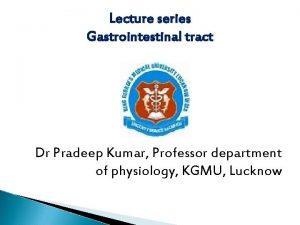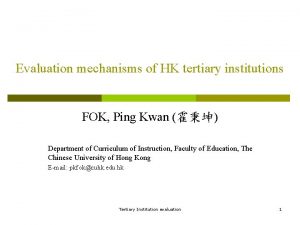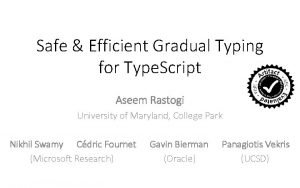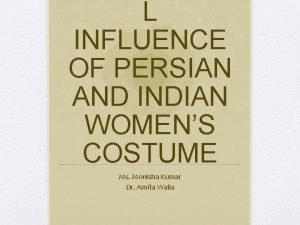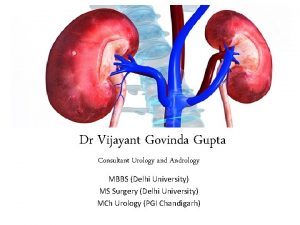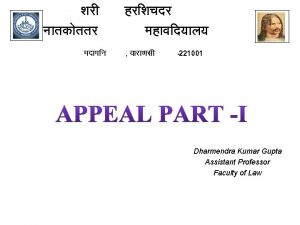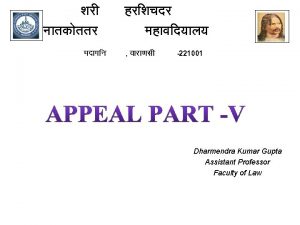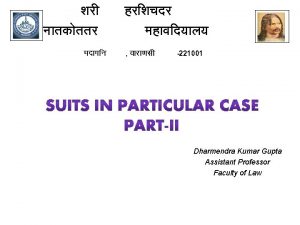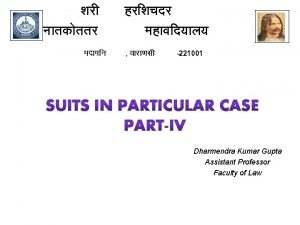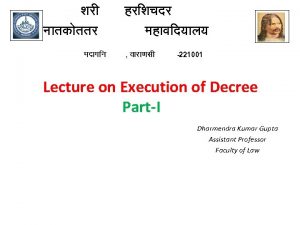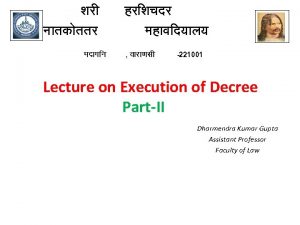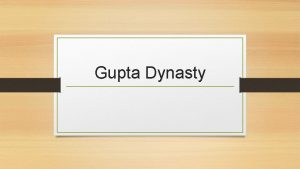221001 Dharmendra Kumar Gupta Assistant Professor Faculty of











- Slides: 11

शर सन तक ततर मद ग न हर शचदर मह व दय लय , व र णस -221001 Dharmendra Kumar Gupta Assistant Professor Faculty of Law

Remedies to a person aggrieved by any decree or order passed by Court Appeal Reference Second Appeal S. 100 -103, 107, 108 O. 42 First Appeal S. 96 -99 A and O. 41 Review Revision Appeal by Indigent Person O. 44 Apple from Orders S. 104 -108 and O. 43 Appeal to Supreme Court S. 109, 112, O. 45 The Constitution

Steps in Appeal Proceeding Memorandum of appeal Rule 1 - 4 registration of memorandum and costs summary dismissal or fixation of day for hearing Rule 9 -10 Rule 11 and 19 Rule 12 Rule 14 Notice of hearing Rule 16 Hearing of Appeal Rule 16 and 20 Rule 17 and 19 Rule 17 and 21 adjourn or dismiss in default or ex parte order steps on sufficient evidence or steps when no sufficient evidence or refer / remand to original court Judgment and decree Rule 24 Rule 27 -29 Refer-R. 25 -26 A Remand-23 -23 A, 26 A Rule 30 -37

Decision, Judgment and Decree • Decision –S. 98, 99 A, R. 34, 2 • Judgment- O. 41 R. 11(4), 24, 30 -34 • Decree- O. 41 R. 35 -37

Decision making in Appeal • Appellate Court, in deciding the appeal, shall not be confined to the grounds of objections set forth in the memorandum of appeal or taken by leave of the Court. • Where the Appeal is heard by more judges than one, any judge dissenting from the judgment of the Court shall state in writing the decision or order which he thinks should be passed on the appeal, and he may state his reasons for the same. Continu e…

Decision making in Appeal • Where an appeal is heard by a Bench of two or more Judges, the appeal shall be decided in accordance with the opinion of such Judges or of the majority (if any) of such Judges. • Where there is no such majority which concurs in a judgment varying or reversing the decree appealed from, such decree shall be confirmed. • Where the Bench hearing the appeal is composed of two or other even number of Judges belonging to a Court consisting of more Judges than those constituting the Bench and the Judges composing the Bench differ in opinion on a point of law, they may state the point of law upon which they differ and the appeal shall then be heard upon that point only by one or more of the other Judges, and such point shall be decided according to the opinion of the majority (if any) of the Judges who have heard the appeal, including those who first heard it. • Nothing in this section shall be deemed to alter or otherwise affect any provision of the letters to patent of any High Court. Continue…

Decision making in Appeal • No decree shall be reversed or substantially varied, in appeal on account of any misjoinder or nonjoinder of parties or causes of action or any error, defect or irregularity in any proceedings in the suit, not affecting the merits of the case or the jurisdiction of the Court. But this rule shall apply to non-joinder of a necessary party. • No order under section 47 shall be reversed or substantially varied, on account of any error, defect or irregularity in any proceeding relating to such order, unless such error, defect or irregularity has prejudicially affected the decision of the case.

Judgment in Appeal • The court shall pronounce judgment in open Court, either at once or on some future day of which notice shall be given to the parties or their pleaders. • It shall be sufficient if the points for determination, the decision thereon and the final order passed in the appeal are read out and it shall not be necessary for the Court to read out the whole judgment, but a copy of the whole judgment shall be made available for the perusal of the parties or their pleaders immediately after the judgment is pronounced. • Content The judgment shall be in writing and shall state— (a) the points for determination; (b) the decision thereon; (c) the reasons for the decision; and, (d) where the decree appealed from is reversed or varied, the relief to which the appellant is entitled; and shall at the time that it is pronounced be signed and dated by the Judge or by the Judges concurring therein. Continue …

Judgment in Appeal • The Appellate Court shall have power to pass any decree and make any order which ought to have been passed or made and to pass or make such further or other decree or order as the case may require, • This power may be exercised by the Court notwithstanding that the appeal is as to part only of the decree and may be exercised in favour of all or any of the respondents or parties, although such respondents or parties may not have filed any appeal or objection. • Where there have been decrees in cross-suits or where two or more decrees are passed in one suit, this power may be exercised in respect of all or any of the decrees, although an appeal may not have been filed against such decrees • Provided that the Appellate Court shall not make any order under section 35 A in pursuance of any objection on which the Court from whose decree the appeal is preferred has omitted or refused to make such order.

Decree of the Appellate Court • The decree of the Appellate Court shall bear date the day on which the judgment was pronounced. • The decree shall contain the number of the appeal, the names and descriptions of the appellant and respondent, and a clear specification of the relief granted or other adjudication made. • The decree shall also state the amount of costs incurred in the appeal, and by whom, or out of what property, and in what proportions such costs and the costs in the suit are to be paid. • The decree shall be signed and dated by the Judge or Judges who passed it. But Judge dissenting from judgment need not sign decree. • Provided that where there are more Judges than one and there is a difference of opinion among them, it shall not be necessary for any Judge dissenting from the judgment of the Court to sign the decree. Continu e…

Decree of the Appellate Court • Certified copies of the judgment and decree in appeal shall be furnished to the parties on application to the Appellate Court and at their expense. • A copy of the judgment and of the decree, certified by the Appellate Court or such officer as it appoints in this behalf, shall be sent to the Court which passed the decree appealed from and shall be filed with the original proceedings in the suit, and an entry of the judgment of the Appellate Court shall be made in the register of civil suits.

